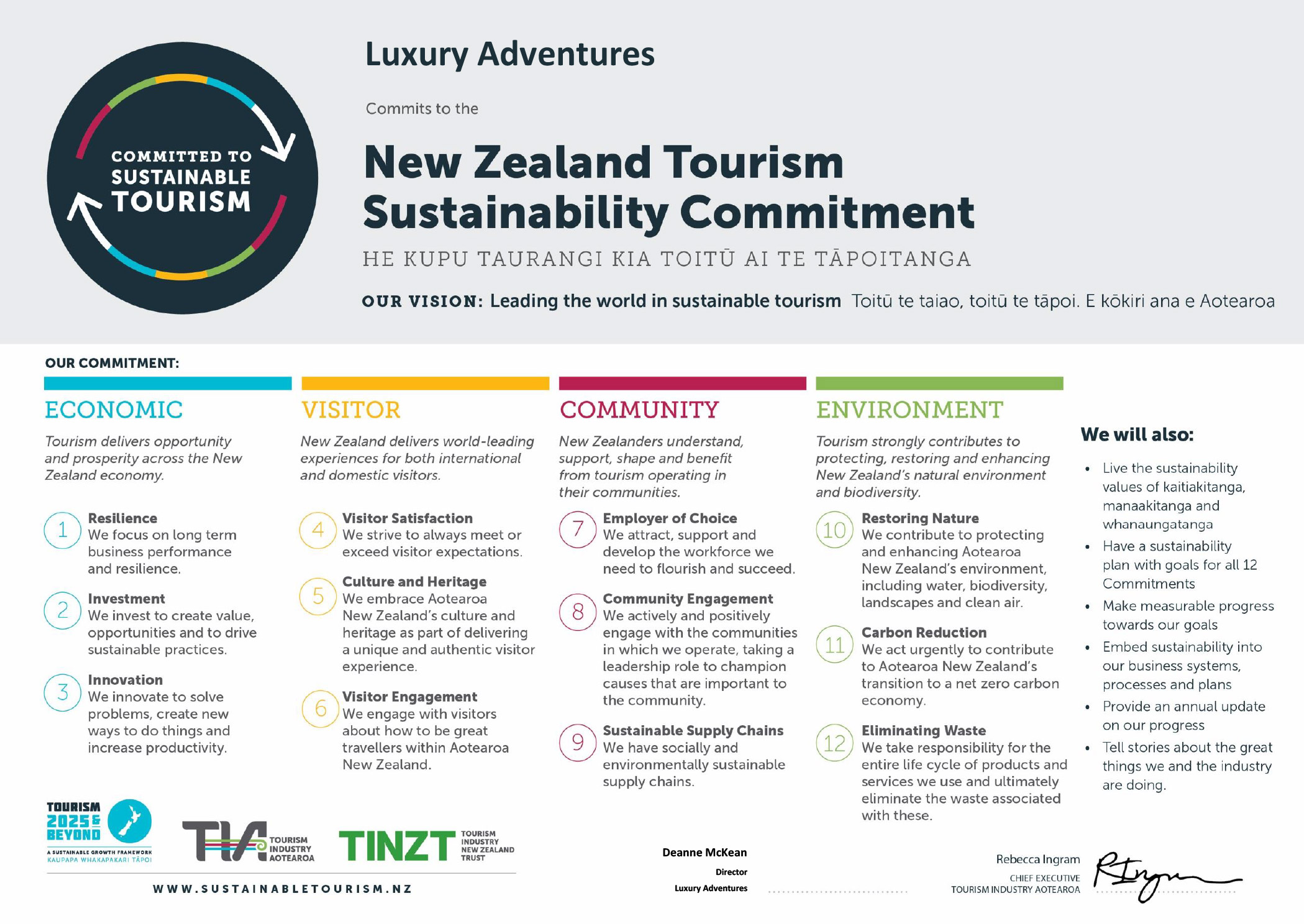Sustainable Luxury Travel
Luxury Adventures recognises the need to reduce carbon emissions and help address sustainability issues. Climate action is a journey that requires both short-term and long-term strategies and tangible actions.
We believe the foundation for any efficient climate action strategy is to track, allocate and measure your carbon emissions. When you travel into New Zealand with Luxury Adventures we will track your Carbon Footprint and the different types of emissions.
We’re dedicated to reaching our climate action objectives. As part of this commitment, we can provide you with the chance to offset your emissions through Carbon Positive.
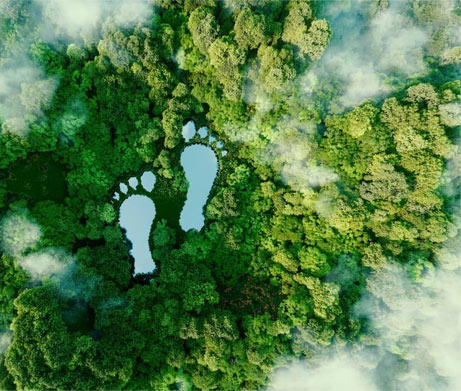
Carbon Positive is exactly what it says it is, they don’t just offset to carbon zero / carbon neutral, they go further & offset 125% of emissions.
We do the work for you. Once your itinerary is confirmed we use a customized greenhouse gas (GHG) calculator to calculate your emissions.
Once the total amount of emissions calculated are confirmed with the team at Carbon Positive, and payment is complete we then purchase the native trees on your behalf. Your trees will be planted at Atiu Creek in the Kaipara Harbour, north of Auckland. More information about the projects can be seen here. You will then receive your Native Tree Offset Certificate. That means you travel throughout New Zealand with a positive conscience…A carbon positive conscience!
Luxury adventures is proactive in the pursuit of climate action, with our main office powered by solar, we are a paperless business.
*Please note accommodation & transport can only be offset for NZ at this stage.
Environmental Care Code
Luxury Adventures has adopted, and adapted this “Leave No Trace” policy out of a responsibility that we feel for the environment. Our company has taken a sustainable approach to tourism and is committed to preserving the precious natural heritage of these unique countries. We expect that anyone participating in trip with us adheres to these guidelines and treats the environment with the respect it deserves.
The land is the property of a great family, some of whom are living, a few of whom are dead, most of whom are yet to come.
The seven principles of Leave No Trace
1. Plan ahead and prepare
Plan ahead by considering your goals and those of your group. Know before you go – get local information, skills and gear you need to make your trip a success.
2. Travel and camp on durable ground
Some areas are more fragile than others. Choose to camp and travel on the most durable surface you can, the best ones are tracks, gravel, snow and most grasses. Impacts on fragile natural features caused by travel and camping can take many years to heal.
3. Dispose of waste properly
Pack it in, pack it out. As users of the outdoors we all have a responsibility to clean up after ourselves. Rubbish and toilet waste are unsightly and can introduce unwanted organisms into the environment. Lead by example – if you see rubbish, pick it up.
4. Leave what you find
People visit natural areas for many reasons; such as exploring nature’s mysteries and surprises. When we leave natural objects and artifacts as we found them, we pass the gift of discovery on to those who follow. Many sites of spiritual and cultural significance to Māori are interwoven with the natural environment.
5. Minimise the effects of fire
Local regulations and conditions change depending on time of year and location. Lightweight stoves, fire pans and mounds mean campfires are no longer essential for cooking or comfort. Wildfires are often caused by carelessness and the natural appearance of many recreation sites has been damaged by campfires, visual scarring and stripping vegetation for firewood. Where fires are permitted, keep them small and make sure it’s out by dousing with water and checking the ashes.
6. Respect wildlife and farm animals
Know when animals are particularly vulnerable, such as breeding times, and change your behaviour with them by observing from a distance. Avoid feeding animals either deliberately or accidentally by leaving food or rubbish lying around. Farming is a big part of New Zealand’s culture and economy, know how to move through farms without disturbing farm animals
7. Be considerate of others
We all go into the outdoors for different reasons, so we must share. Think about others, respect their activities and what they might be trying to get out of their recreational experience.
Our Partners



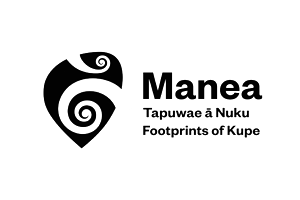
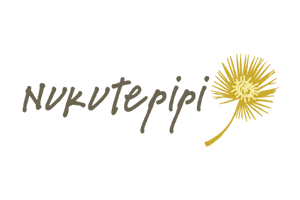
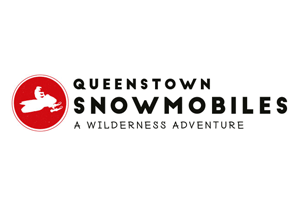
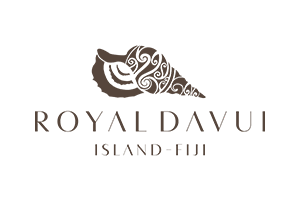


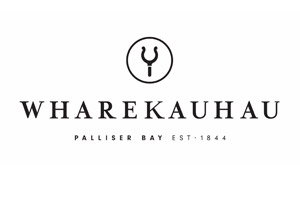

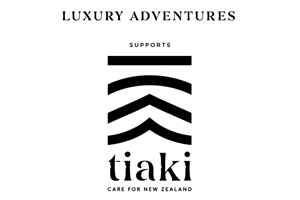
Copyright © 2023 Luxury Adventures




